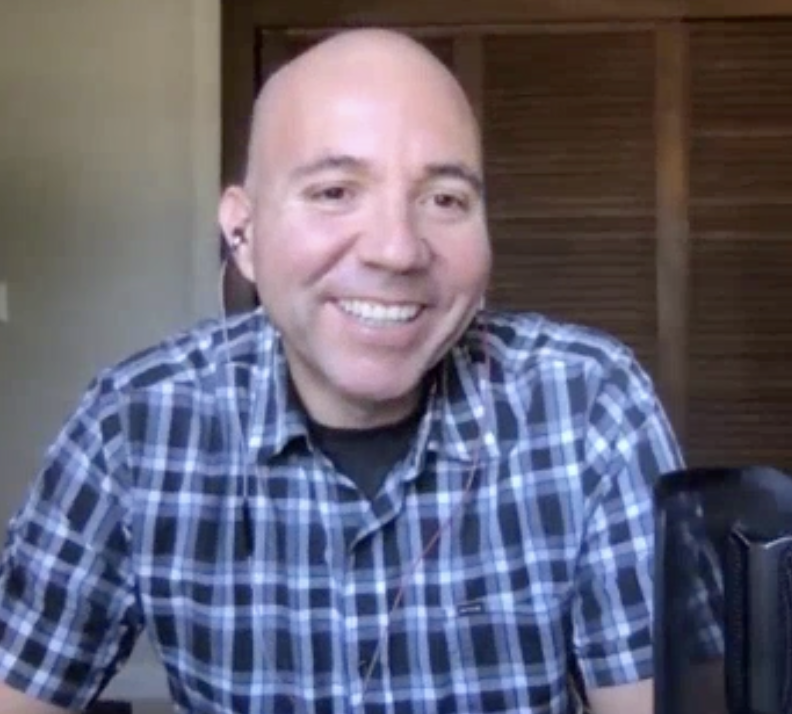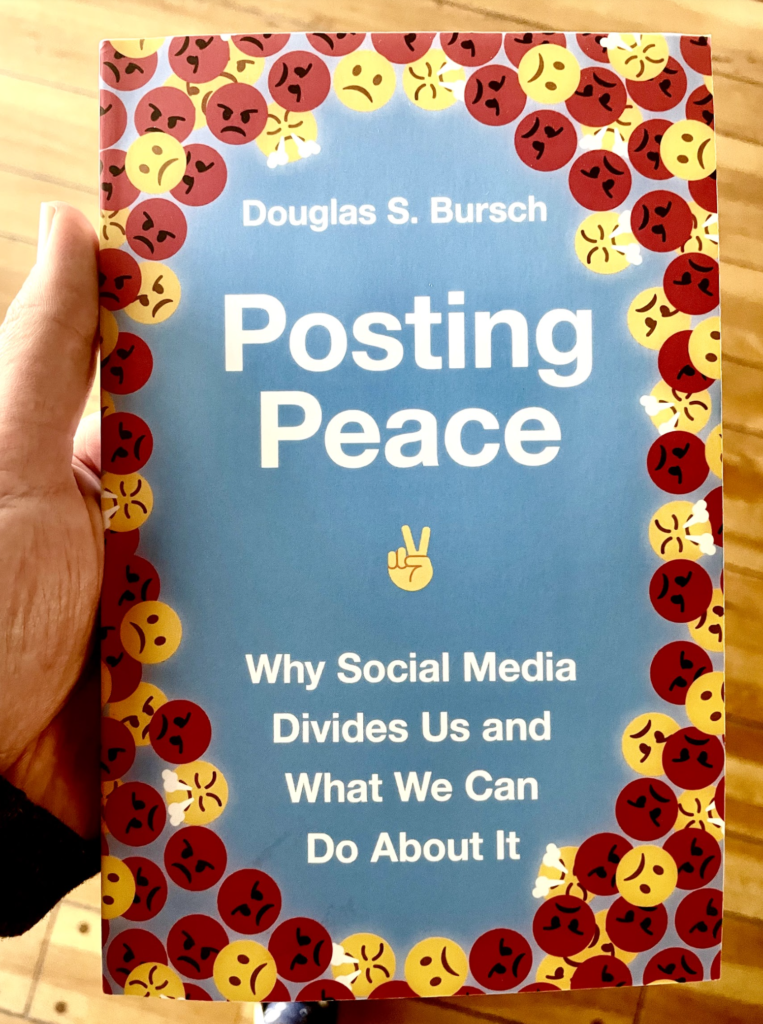
How should we use social media channels in redemptive ways? And how do we seek peace and reconciliation on social media when we get criticized for our ideas?
Douglas S. Bursch’s awesome new book “Posting Peace: Why Social Media Divides Us And What We Can Do About It” provides insights into our polarized social media streams, how social media impacts our thinking, and ways we can use more empathy in our social media conversations. He also provides us with a powerful framework on how to be peacemakers on social media — and how to seek reconciliation (even with those who we deeply disagree with). He says:
“Our ability to instantly respond or comment about anything and everything makes social media a highly charged, emotionally visceral enivronment. Wisdom and thoughtfulness thrive in contemplation, meditation, prayer, and introspection over time. However, the internet rarely encourages contemplative processing.”
This book convicted and challenged me to think more deeply about my own social media posts — and to think critically about my motivations for sharing certain viewpoints. He reframed my thinking on how I think about negativity on social media and trolling behaviors. He also revealed the selfish ways that I use social media (and often stay in my own echo chambers) — which doesn’t help me build empathy for those that I disagree with.
His pastoral perspective on social media helped me to see the ministry work that I need to pursue. He says:
“We must embrace our vital, sacred calling to live out the ministry of reconciliation in our social media contexts and recognize the strategic role we play in the formation of social media culture. To transform the culture, we need to be intentional in all of our online encounters.”
This book provided me with helpful insights on ways to think critically about every like, share and comment — and to remember my calling to pursue peace and reconciliation.
You can get your copy of Posting Peace: Why Social Media Divides Us & What We Can Do About It from InterVarsity Press or any of your favorite online booksellers. You can also learn more about his ministry at FairlySpiritual.com.
Podcast Conversation: Douglas S. Bursch
In this podcast, Douglas S. Bursch discusses the different ways that social media impacts us, how we should respond to criticism and trolling behaviors, ways to develop more empathy for those who disagree with us, why it’s important to think about our motivations when posting content on social media, and why need to be aware of the echo chambers that we might be drawn to.
I pray this conversation helps us all become more focused on peacemaking on social media.
You can listen (or download) the complete podcast here:
You can also subscribe or download this episode on iTunes, Spotify, Google Podcasts or Stitcher. You can also subscribe to the video series on YouTube.
Here are some video clips from our conversation:
• Different Ways Social Media Impacts Us
• Responding to Criticism Online
• Processing Conflict & Trolling
• Self-Awareness & Developing More Empathy
• How to Focus on Reconciliation
• Right Words, Wrong Motivations
• Sinning Against Others in Hurtful Communication
• Motivations Behind Our Social Posts
• Problems with Networked Individualism
• Communicating Love & Building Community
• Being Aware of the Echo Chambers Online
• Trolls vs Trolling Behavior
You can catch the full video with Doug Bursch discussing reconciliation on social media here.
Dr. Douglas S. Bursch
Douglas S. Bursch (DMin, George Fox Evangelical Seminary) is co-pastor of Evergreen Foursquare Church in Auburn, Washington. He serves on the US Doctrine Committee, International Doctrine Committee, and Education Commission of the Foursquare Church, and he has taught theology courses as adjunct faculty for Life Pacific College and Life Ministry Institute.
He earned a DMin from George Fox Evangelical Seminary with his dissertation research focusing on social media. A former newspaper columnist and talk radio host, Doug has produced and hosted over 1,200 Christian radio broadcasts. He is the producer and host of the Fairly Spiritual Show radio program and podcast.
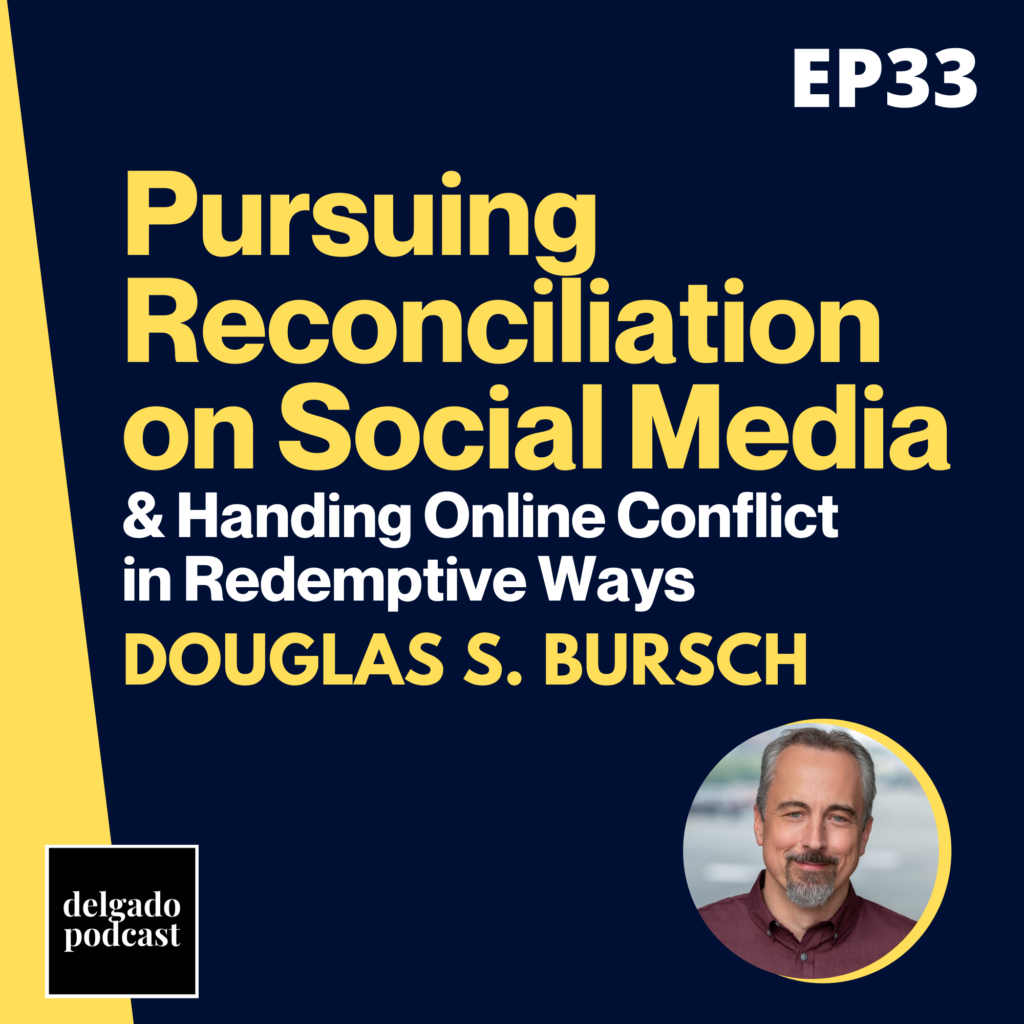
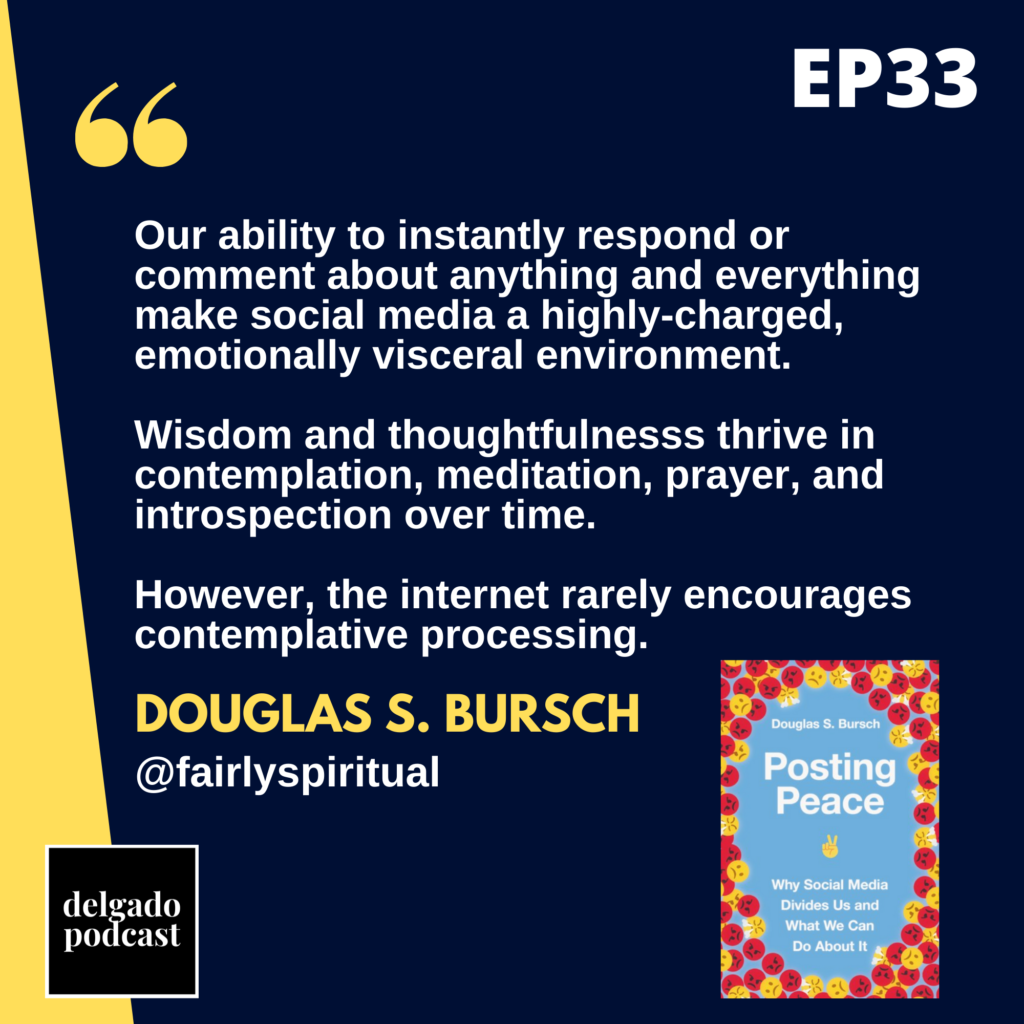
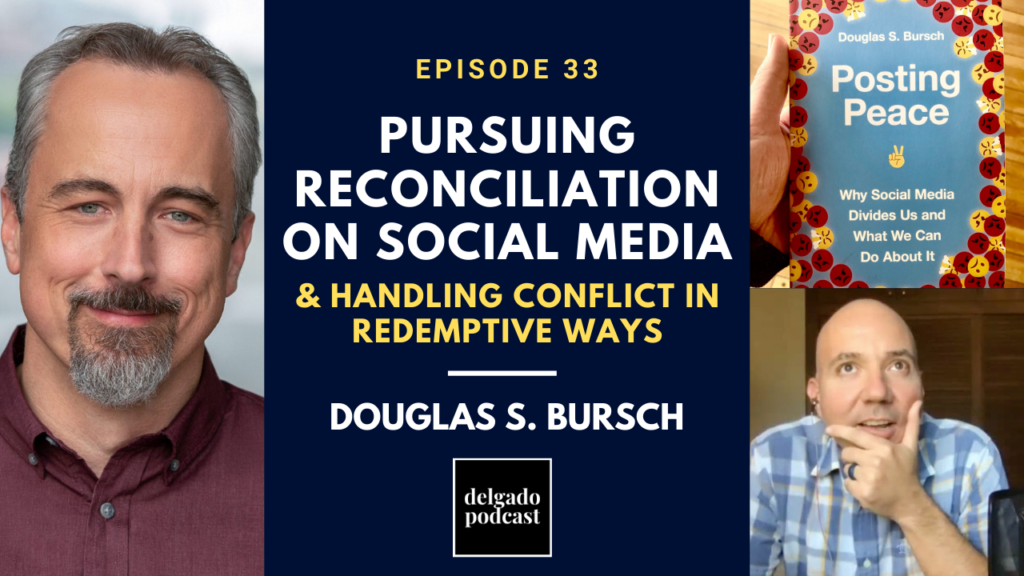
Check out the full archive of past episodes on spirituality, social justice, and scriptures here.

